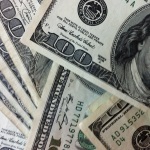Euro 2016 is currently taking place in France. The tournament is the most prestigious prize in European football, and one of the highest profile sporting events in the world. It is also one of the most lucrative. Modern football is inherently commercial in its nature and produces massive revenues through mediums such as television broadcast deals, endorsements and tourism. Here is a snapshot of some of the mammoth figures involved.
Television Rights
According to UEFA, they expect TV broadcast rights for Euro 2016 to total just over €1bn. This represents various broadcast deals agreed in over 230 territories. With an average of 150 million viewers expected to tune into each game, it is no wonder that the broadcasters are prepared to pay such a premium. Indeed, television is integral to football’s business model and is the largest source of revenue for the likes of UEFA.
As a result, matches are increasingly designed to cater for a television audience, from the scheduling to the Superbowl-esque opening ceremonies.
Sponsorship and Endorsements
Sponsorship is another major avenue of income for UEFA. The likes of Adidas, Coca-Cola, Turkish Airlines and McDonalds pay a total of €400m to have their brands associated with the tournament. The true cost is likely to be higher, though. Sponsors spend a significant amount on activation- advertising campaigns that promote their endorsements.
Given the immense profile of the tournament, it creates an attractive opportunity for companies to showcase their brands to a massive global audience. UEFA does its best to promote this, strictly enforcing exclusivity when it comes to advertising and products sold in the venues. Hard luck if you’re not a fan of Carlsberg, because that’s the only beer you’ll be getting in the stadiums.
Ticketing and Hospitality
There was a time when ticket sales would have been the major money-spinner for football tournaments like this. These days, though, TV is the top dog. Nevertheless, UEFA does receive the considerable sum of €500m from ticketing. Indeed, the 2.5 million tickets sold this year is a significant increase from 2012, in part thanks to the expanded 24 team format, which means there are more matches.
UEFA also bolsters this through premium hospitality options, such as corporate boxes. The lavish surroundings and gourmet catering offers an experience a world away from the staple half-edible half-time pies enjoyed by the masses. They may come at the detriment of the atmosphere and genuine fans, but hospitality is incredibly lucrative. For that reason, the posh seats are here to stay.
Prize Money
Given the overall increase in revenue compared to four years ago, the prize money for teams has also expanded. UEFA will award a total of €301m to the teams, a 50% increase on 2012. Each team will get a €8m participation fee, with additional amounts for progressing through each round. Overall, the winners can receive as much as €27m.
The prize money is normally distributed by the relevant FA to their players as a bonus (still probably short change for the likes of Ronaldo).
French Spending for Euro 2016
The French government has invested a significant amount in the tournament, which is a chance to boost the nation’s image, prestige, and tourism. The main area of investment has been in building and renovating stadia. A total of €1.6bn was spent to prepare the ten host venues, including the brand new Parc Olympique Lyonnais in Lyon, and the upgraded Stade Vélodrome in Marseille.
Impact on the French Economy
The French do get some return from hosting the tournament, though. 1.5 million foreign fans visiting France will spend around €1bn over the course of the tournament, money pumped into the French economy.
This probably doesn’t take into account the bill for cleaning up after some rowdy fans. Tear gas manufacturers will be having a field day, though.


















